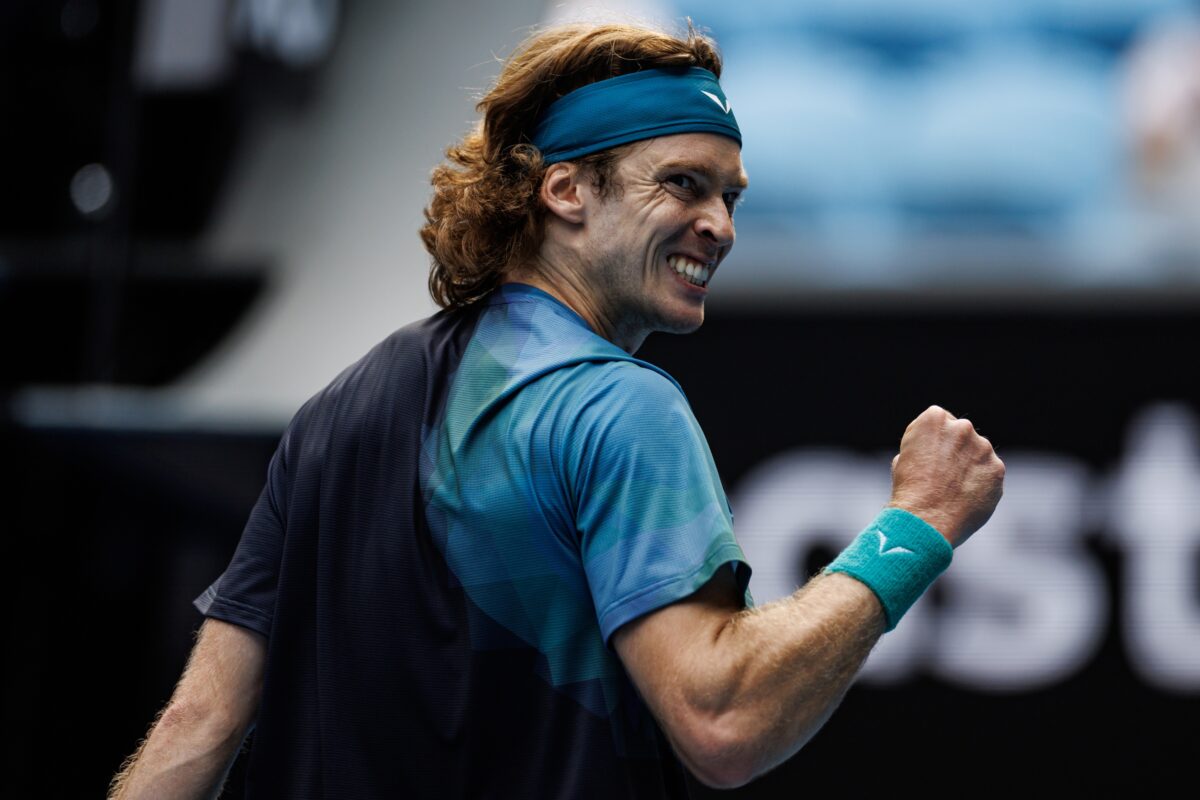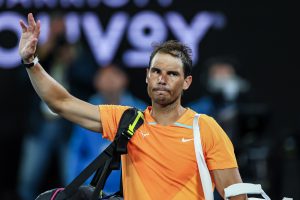In the fast-paced world of professional tennis, rules are often treated as the sacred pillars on which the sport stands. But as the game evolves and the pressure to win intensifies, players’ mental health is increasingly coming under the spotlight. The question arises: Are the strict rules governing tennis truly more important than the well-being of the players who bring the sport to life?
Recent incidents, including Andrey Rublev’s own at the Paris Masters, suggest that the governing bodies of tennis may be placing too much emphasis on regulations at the cost of players health.
Rublev’s meltdown in focus
Rublev exemplifies the growing tension between the rigid framework of tennis and the human fragility of its players. During his Paris meltdown, Rublev struck himself with his racquet out of frustration, resulting in an injury. It was the first time he had shown visible signs of mental exhaustion and frustration on the court, having been defaulted earlier this year in Dubai, and it won’t last unless the sport starts prioritizing the mental well-being of its athletes over adherence to inflexible rules. Rublev’s incident should be a wake-up call for the tennis establishment, highlighting a systemic problem where players are pushed to their emotional limits with little to no outlet for stress relief.
Tennis has a deeply ingrained culture of discipline and strict adherence to tradition. The sport’s aggressive approach to mental lapses often feels draconian, from penalty fines for outbursts to warnings for smashing racquets. Instead of addressing the underlying mental strain that may lead to such incidents, players are punished and expected to maintain an almost robotic level of control. Rublev’s injury following his outburst is a physical manifestation of the psychological burden placed on modern athletes, who are forced to bottle up emotions in the heat of battle.
Rublev is far from an isolated case.
Other mental health concerns in tennis
Mental health concerns in tennis have been voiced repeatedly by players at the top of the game. Naomi Osaka, one of the most recognizable stars in tennis, made headlines when she withdrew from the 2021 French Open, citing anxiety and depression withdraw from the 2021 French Open, citing anxiety and depression as reasons for stepping back from the sport. Osaka exposed the immense pressures tennis players face and sparked a global conversation about the need for the sport to prioritize mental health. Instead of sympathy, Osaka initially faced fines for skipping press conferences, proving that the tennis establishment remains more focused on upholding rules than showing empathy for players.
Another champion, Novak Djokovic, has also been vocal about addressing mental health in tennis.
While Djokovic is often portrayed as an unshakeable competitor, even he has acknowledged the emotional strain of competing at the highest level. In 2020, Djokovic broke down during a press conference after losing at the US Open, having been disqualified for accidentally hitting a line judge with a ball. His frustration wasn’t about the rules but the mental toll that relentless competition and strict regulations could have on a player. The zero-tolerance approach to emotional outbursts or accidental infractions reveals a system more concerned with order than compassion.
What’s most disturbing is how little seems to change despite these glaring examples. Tennis authorities have responded to meltdowns, breakdowns, and mental health crises with warnings and fines but have largely ignored the underlying issue. Players are expected to navigate the high-pressure world of professional tennis with minimal psychological support. Sure, the rules ensure order on the court, but at what cost?
Change must be had
The establishment’s approach to rules versus mental health seems to be one of denial. Instead of acknowledging the toll that constant travel, physical exhaustion, and media scrutiny take on players, the sport seems to believe that stricter adherence to rules will maintain the game’s sanctity. However, the true cost is borne by the players, who are pushed to their breaking point, often in the public eye. Tennis demands peak performance while giving players few tools to manage the intense psychological strain.
The recent outbursts from players like Rublev, Osaka, and Djokovic are not aberrations—they are symptoms of a broader problem within the sport. Tennis needs to rethink its priorities. The sport’s governing bodies must recognize that players are not machines and that the mental pressures they face are as important as any rulebook. The regulations may keep the game fair, but if mental health isn’t severe, the sport risks damaging its greatest assets: the athletes themselves.
If tennis wants to continue evolving, it needs to start by showing that players’ mental well-being is just as important as following the rules. Otherwise, we’ll see more incidents like Rublev’s—players lashing out, hurting themselves or others, not because they don’t follow the rules but because they’re going under the weight of them. Until that balance is restored, tennis will remain a sport where rules matter more than the very people who make the game worth watching.
Main Photo Credit: Mike Frey – USA TODAY Sports






